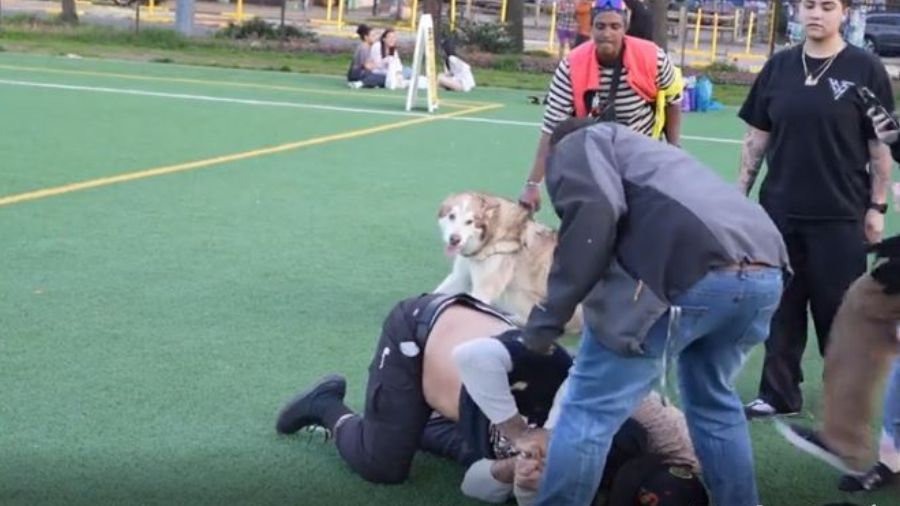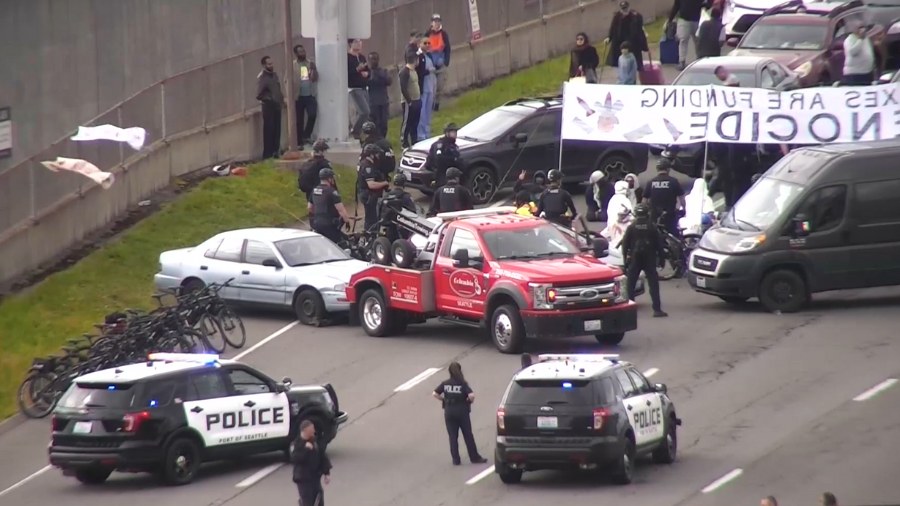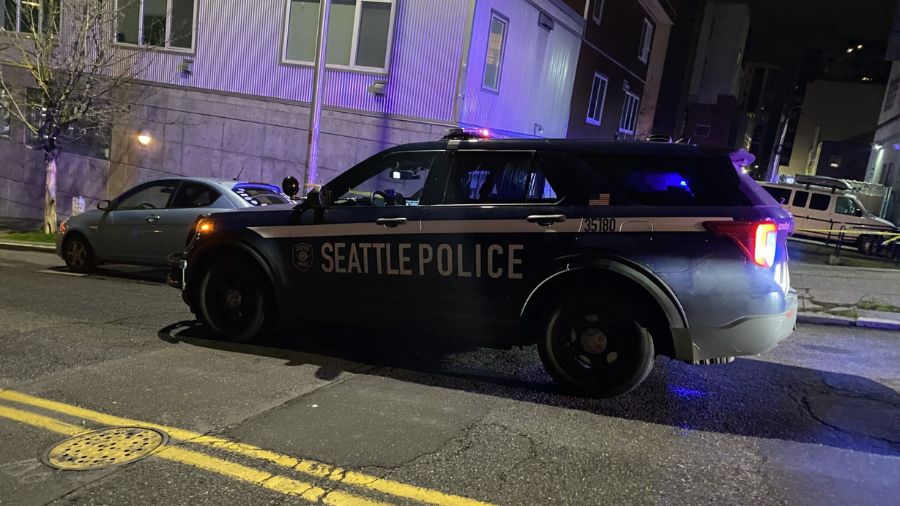Adrian Diaz looks to change Seattle Police’s ‘toxic environment’ as permanent chief
Sep 21, 2022, 1:47 PM | Updated: 2:01 pm

Seattle Police Assistant Chief Deanna Nollette and Assistant Chief Adrian Diaz are blocked by protesters from entering the newly created Capitol Hill Autonomous Zone (CHAZ) in Seattle, Washington on June 11, 2020. - Two police officers attempt to enter the area, but are blocked by people standing close together and holding cameras as they film. The area surrounding the East Precinct building has come to be known as the CHAZ, Capitol Hill Autonomous Zone. (Photo by Jason Redmond / AFP) (Photo by JASON REDMOND/AFP via Getty Images)
(Photo by JASON REDMOND/AFP via Getty Images)
As the newly confirmed Seattle Chief of Police, Adrian Diaz has come in with a laundry list of changes and improvements to help solve some of the biggest problems facing the Seattle Police Department, from historically low staffing levels to a rise in violent crime. He unveiled his plan to solve those issues in an exclusive appearance on KIRO Newsradio.
It was announced Tuesday afternoon that Mayor Bruce Harrell nominated Seattle Police Department’s interim chief Adrian Diaz to take over the position permanently, beating out the other top candidates, including Assistant Tucson Police Chief Kevin Hall and Assistant Seattle Police Chief Eric Greening.
Mayor Harrell appoints Adrian Diaz as permanent Seattle police chief
In a press conference about his decision, Harrell said, “Our police officers spent the last several years serving our community despite exceptionally challenging circumstances. You name the circumstance of difficulty … [Diaz] committed to supporting and retaining [officers]. Chief Diaz is the right choice for the job.”
Diaz has been doing the job of interim police chief for about two years after he took over from the previous Chief of Police, Carmen Best, in August 2020.
In an interview on the Gee and Ursula Show, Diaz said that one of the ways that he was looking to address issues of culture at the Seattle Police Department (SPD) is by working to train officers to better work with community members, as well as support officers in the high-stress work environment.
“I’m looking to change the level of a toxic environment for many of our people where it hasn’t been healthy. And a part of that is increasing people’s level of wellness,” Diaz said. “… Focusing on the social-emotional and brain development, trauma-informed practices, officer wellness, listening to the actual members in the community talk about the history of policing in the community, talking about why there’s a trauma of because of police brutality in the community, and giving them an experience very early on [in their training].”
In the aftermath of the 2020 George Floyd protests, many in the community advocated for the Defund the Police movement, looking to take the $30 million budgeted to SPD in 2020 and spreading that money around to other community programs like mental health services, social work, and addiction and recovery services as alternative ways to prevent crime.
The effects of the Defund the Police movement have been long-lasting, Diaz says, including how officers see their relationship with the community, with the department hitting historically low staffing levels: over 400 officers departed SPD since 2019. Diaz says that this movement has diminished, though, as the region has been rocked by record levels of violent crime this year — violent crime is up 12.3% year-over-year in Washington state.
Many in the community have asked that understaffing be addressed. Diaz is now in charge of hiring 500 officers over the course of the next five years. It will be a long process with officer morale waning as staffing struggles create long overtime hours for officers, but Diaz hopes that the worst is over.
“The trauma of losing a precinct, the trauma of potentially losing their fellow officers to other departments, the potential for being defunded, all of that created a huge weight on many people’s shoulders,” Diaz said. “Now we’re starting to get out of that.”
“I think the defunding movement is dead,” Diaz continued. “I think we all know that we see a higher increase of violence when we don’t have any officers out in the streets. We also need to make sure that we’re training officers in the right manner as well.”
He stressed that it is still important to listen to the community and address concerns, and one of the ways that he has done this is by changing crowd control tactics that SPD uses during the protests, saying that the department hasn’t used a ‘blast ball‘ or ‘FM 303‘ since 2020.
“I’ve had to reset that kind of accountability structure … when it comes to discipline. I’ve terminated close to two dozen [officers] in my time, which is the most of any chief that I know of. A part of that is I keep it very simple. Don’t lie, don’t be racist, and don’t commit crime. And I’ve held people accountable to those standards.”













